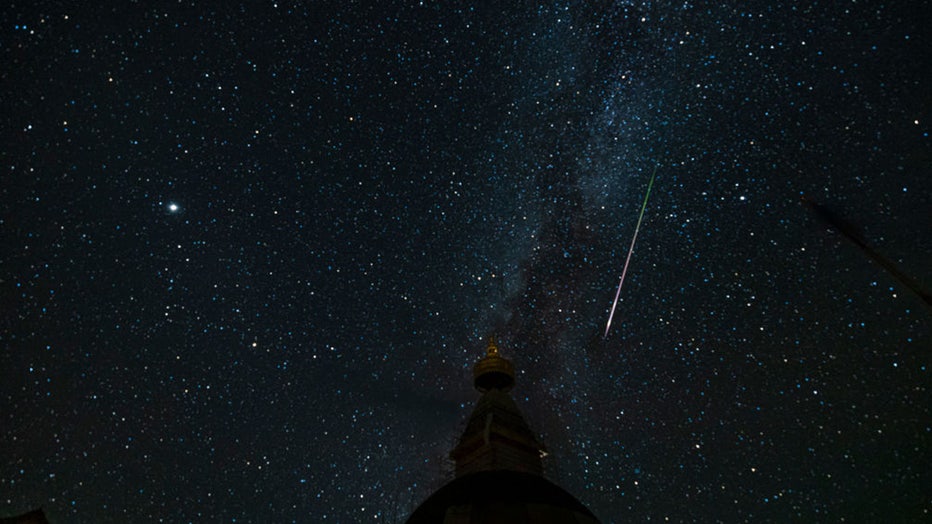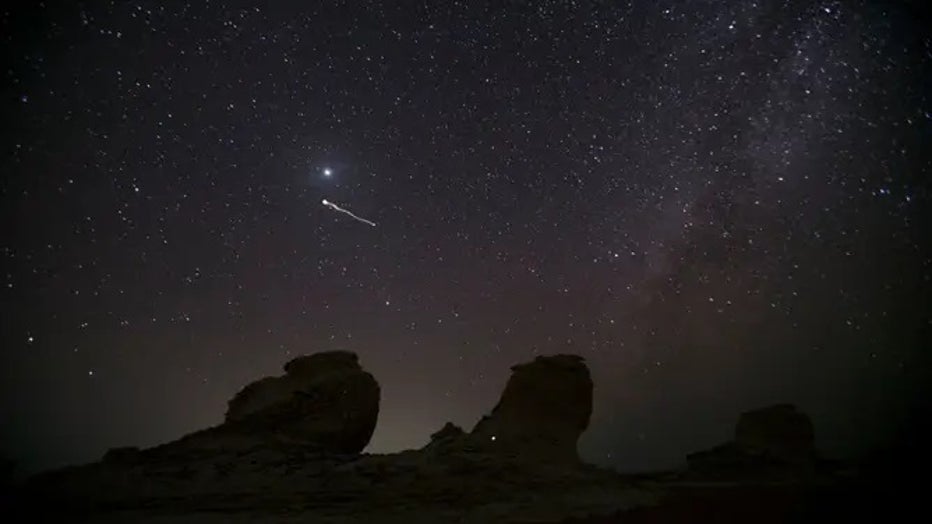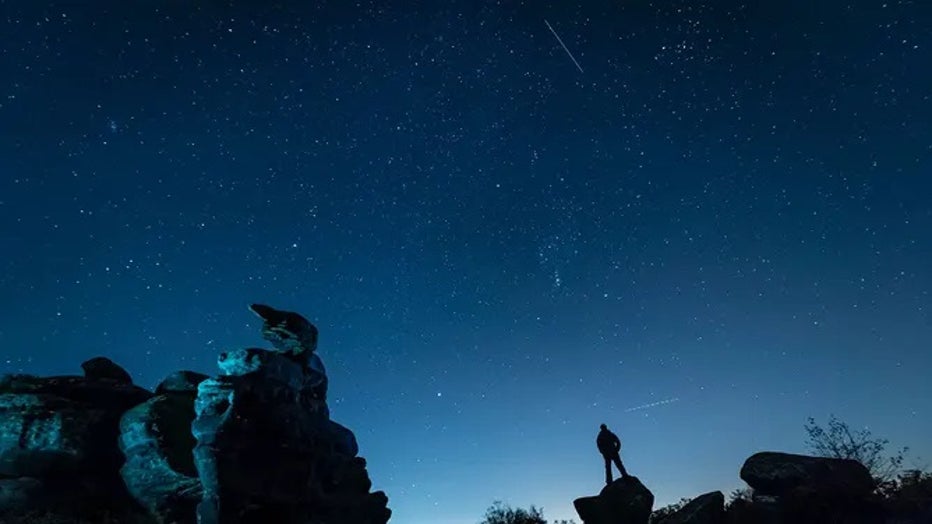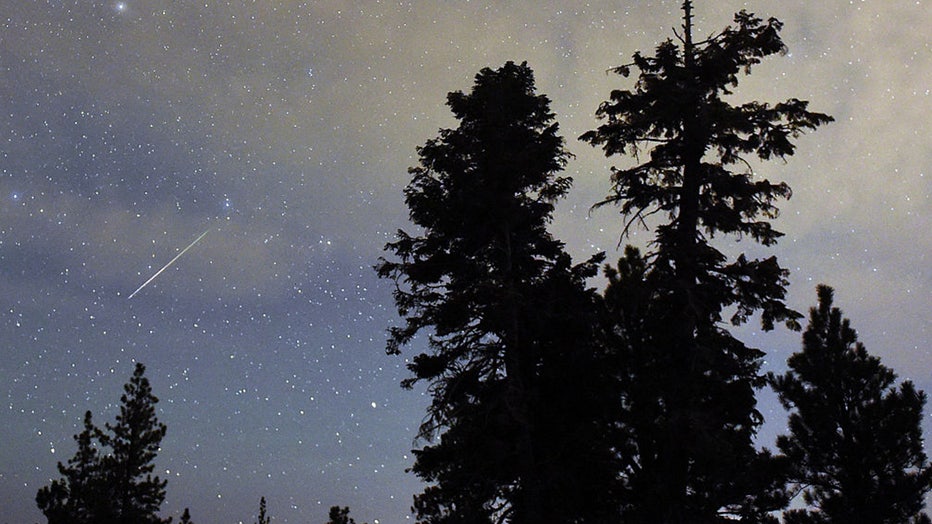NYC solar weather: How to see the meteor showers this week

Tri-state residents react to meteor boom over NYC
People on both sides of the Hudson blew up social media after hearing and feeling a large boom on Tuesday. NASA reported that a meteor could have disintegrated above Midtown Manhattan around the same time. FOX 5 NY's Richard Giacovas has the story.
NEW YORK - Now that Debby, the hurricane-turned-tropical-depression, is on its way out, get ready to take in the annual Perseid meteor shower in New York City.
The shower is considered to be the best meteor shower of the year, according to NASA.

FILE - Perseid meteors streak over sky on August 13, 2021, in Golog Tibetan Autonomous Prefecture, Qinghai Province of China. (Jia Jiqian/VCG via Getty Images)
The spectacular peaks from Sunday Aug. 11 through Tuesday Aug. 13.
Little to no cloud cover is expected in the Tri-State Area during the Perseid shower (National Weather Service), making great conditions for viewing.

NYC Weather Forecast
This week is expected to bring nothing but sunshine to the Tri-State Area. FOX 5 NY's Nick Gregory has the forecast.
What are Perseid Meteors?
Perseids are swift and bright meteors that leave long wakes of light and color behind them as they cruise through the Earth's atmosphere (NASA).
The Perseids are one of the most plentiful showers with about 50 to 100 meteors seen per hour.
They usually occur in warm summer nighttime weather, allowing sky watchers comfortable viewing conditions.

A picture taken on August 13, 2021 shows the Perseid meteor shower over the White Desert north of the Farafra Oasis in the New Valley Governorate. Photo: Gehad Hamdy/dpa (Photo by Gehad Hamdy/picture alliance via Getty Images)
Perseids are also known for their fireballs.
Fireballs are larger explosions of light and color that can last longer than an average meteor streak.
NASA says this is because fireballs come from larger particles of cometary material.
Fireballs are also brighter, with apparent magnitudes greater than -3.
How to see meteors in NYC

A plane and a Satellite pass by as a man stargazes at Brimham Rocks in Yorkshire as the Orionid meteor shower reaches its peak. (Danny Lawson/PA Images via Getty Images) ( )
You won't want to miss the last of the summer meteor showers.
The best times to catch the Perseids are during the pre-dawn hours. It is possible to view meteors from this shower as early as 10 p.m.
Where Do Meteors Come From?
Meteors come from leftover comet particles and broken asteroids (NASA).

FILE - A Perseid meteor streaks across the sky above desert pine trees on August 13, 2015 in the Spring Mountains National Recreation Area, Nevada. (Ethan Miller/Getty Images)
When comets go around the sun, they leave a dusty trail behind them.
Every year the Earth passes through these trails of debris, allowing the bits to collide creating a fiery streak in the sky.
When is the next meteor shower?
Next up is the Delta Aquariid meteor shower, through Aug. 21.
The Perseids will continue through Sept. 1.

